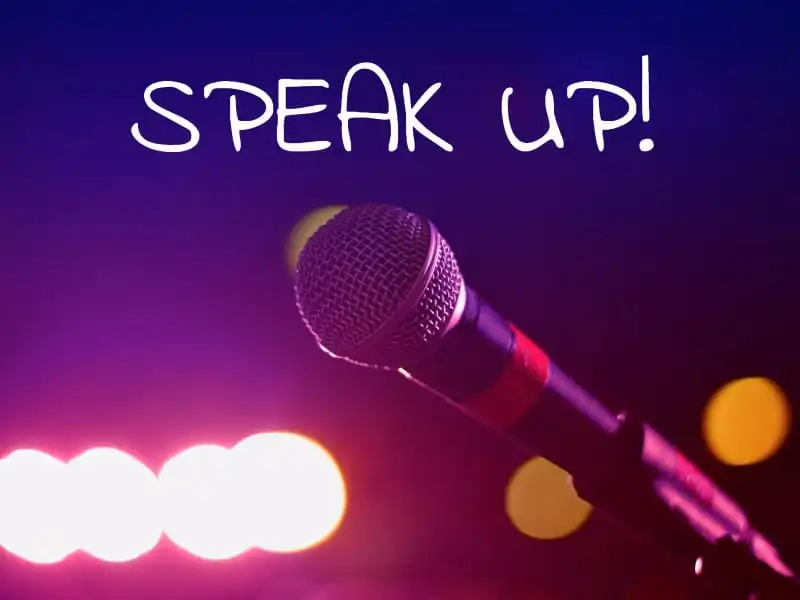

In this article, we’ll discuss the 3 gifts embarrassment can bring to us:
1. Focus 2. Clarity 3. Motivation
1. Focus
Fact: embarrassment is painful
When it sets in, we suddenly find it difficult to breathe. Our heart is pounding a thousand times a minute. Sweat is running down our back, and our face gets beet-red. Being embarrassed is awful. This is why we are sometimes willing to do anything to spare ourselves of the feeling.
However, the discomfort is also an asset as it demands our attention
Biologically, we are programmed to feel pain, not because the universe is sadistic and wants to torture us, but because pain can effectively call our attention to what’s important.
Remember the last time you injured yourself? Didn’t it feel like the whole world suddenly condensed into a single focal point, and all that you could sense of this grand universe was the place that hurt?
Just as physical pain commands our attention and pushes us to react to danger in a split-second, mental pain can force us to zoom in on a problem.
2. Clarity
Once we’re attentive, embarrassment then provides powerful insight
We are able to gather valuable information from others’ teasing or insults as long as we know how to interpret the clues we’re given, and as long as we have the courage to face the fact that we aren’t perfect.
The trick is to put aside the hurt feelings for a moment and ask ourselves these two questions:
1) is there any truth to what they’re pointing out, and if so
2) is there something I can change?
Embarrassment is like an alarm that goes off whenever there may be an opportunity to learn something new. Yes, it can be a false alarm, but let’s make that call only after we scrutinize the situation.
To give you an example:
One of my friends really loved to make fun of my pronunciation in front of others. Instead of dwelling on her insensitivity, I soon learned to read my embarrassment as a signal to dig deeper.
I knew that she would never make fun of me without a basis. The reason why teasing hurts so much is that we know on some level, the other person may be right about our flaws.
On one particular occasion, she interrupted me while I was talking to a bunch of people, “Why do you always say ‘noodos’?”
While I sat there confused, she repeated, “Noodos, want some noodos?”

Honestly, it had never occurred to me that I was saying the word in a different way! “Noodles” is one of the simplest words in my vocabulary; I had no reason to think my pronunciation was off. Thanks to her, I was able to discover that I hadn’t been pronouncing the ‘l’ at the end at all
I got the last laugh because regardless of her intentions, my dear, sarcastic friend actually helped me build a great foundation for my career as an English coach. Without her, I would never have paid so much attention to the details that matter.
3. Motivation
Pain forces us to take action — immediate action
Embarrassment is like the spur on a rider’s shoe; one sharp sting can send us galloping forward at top speed.
Every time my friend made fun of my pronunciation, I was highly motivated to figure out how to prevent that situation from happening again. Not only did I fix the way I was saying “noodles”, I also began to pay attention to all of my word endings.
This, in turn, led me to discover an interesting phenomenon
Chinese speakers tend to leave out the consonants at the end of words because none of the words in Chinese have any consonants at the end!
I became hyper-aware of the pattern both in my own speech and in all of my clients’, and I’ve often been told that my coaching on pronunciation is particularly enlightening. Isn’t it amazing how far into the future embarrassment can serve us?
Of course, it would be nice if no one embarrasses us at all
That’s always our first choice, but we don’t have control over how others act, and as we have established: trying to avoid feeling bad comes at a great cost to our personal development.
In the process of learning, we will necessarily make mistakes, and there are always people who are a bit mean-spirited. Sometimes, they don’t even intend to hurt us; they just want to have a little bit of fun (like my friend). If we learn how to embrace embarrassment, we can make the most of these seemingly awful situations.
What if our mind just goes blank when I feel embarrassed?
This happens to some people. In fact, it happens to me too. First: my mind goes blank, then it swarms with a million thoughts. Soon, I feel anger surging up. The question, of course, is: how can we learn anything from the experience if, as we drown in embarrassment, our mind refuses to be in control?
With some practice and discipline, we can solve this problem. I find it very helpful to start with the centering breath (breathe in for 6 counts, hold for 2, then breathe out for 7 counts).

Then I try to notice how I’m arguing with the other person in my head as I try to discredit him/her. Once I can recognize what I’m doing, I can gradually drop that train of thought. I just keep reminding myself: this isn’t about him/her. This is about me. Let’s focus on me.
As I begin to feel calm
I then ask myself our two important questions: 1) is there some truth here? 2) what can I do to make things better?
The key is to think of who we can become instead of what they have done. Yes, they are being mean and aggressive. They may even be mostly wrong. But the point is: in some ways, they are right, and perhaps we can improve ourselves if we try listen to what’s really been said.
Be careful though
Others are not always right when they are critical of us. It’s perfectly possible that they make fun of us just because they want to hurt us.
If after taking the calming approach described above, you still can’t find something to fix (either because it isn’t true or it cannot be changed), then it’s important to release the feeling instead of trying to work on it further. We can hurt our self-esteem if we hold on to unfounded embarrassment for too long.
SPEAK UP!
Remember those words my friends put on my door? After their laughter subsided, I forced a smile and tried to act like it’s nothing when in fact, my insides were boiling.
I gave myself a moment inside the room, and when I felt I could breathe again, I tried to probe deeper into the joke:
Were they right?
Yes, I often preferred to listen to others in a conversation because I didn’t always know what to say… I was afraid that I may sound dumb, that I may make silly mistakes when I spoke English.
Was there something I could do about this?
Definitely. A few weeks later, I joined the Daily Pennsylvanian (our campus newspaper) and became a sales representative to try to speak up more.
As part of my job, I had to make a lot of cold calls and speak to many business owners in intimidating situations. A semester later, I was promoted to team leader, and a semester after that, I became the manager of our Advertising department, ultimately winning the title of Business Member of the Year.
What I learned from that experience has served me to this day, and I am no longer afraid to reach out to others and speak up.
To review what we’ve covered:
Since embarrassment is a part of life, it’s time to learn how to embrace the feeling and make it work for us! The next time when we feel embarrassed, let’s remember how that feeling can help us grow and let’s march right ahead!
In short, here are the three ways embarrassment can benefit us:
1) It focuses our attention like nothing else
2) It provides instant clarity on what we need to do
3) It gives us great motivation to change
Next Step
While embarrassment can be a powerful ally as we learn English, it’s not always easy to adjust our mindset so that we can benefit fully from the emotion. If we’re not careful, it can easily defeat us and make us give up our dreams.
This is why having a supportive and knowledgeable network is so important! Join English Ever After: the membership community of Bring Your English to Life to get the support and guidance you need. We can overcome embarrassment and learn to leverage it together.
